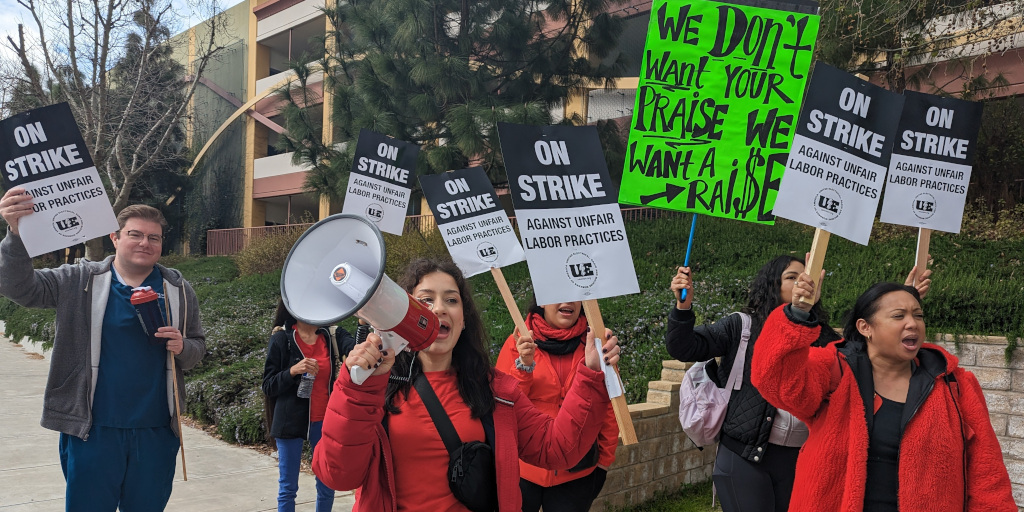
While most negotiations are settled in a timely manner without a strike (but not without a fight), it is important to know how to prepare for and conduct one. The threat of a strike and advance preparation are often the best deterrent to having to take such action.
The members decide to call or end a strike. A strike can be proposed by the leadership, but the members must decide whether to strike or not, by secret-ballot vote. This gives the strike more legitimacy than a strike ordered by union leaders. A secret-ballot vote should also be required to end a strike.
Workers should not be “paid” by the union to strike. Maintaining a strike is a difficult task requiring extensive organization. Strikers must be determined to win. They must be committed to hard work and making the serious sacrifices required. The union will never be able to pay people enough money to make up for a missing paycheck. If strike benefits become the issue, people may feel they have no choice but to return to work when their benefits are reduced or run out.
Collective funds for a collective effort. In a democratic union like UE, strike support is handled differently. To the extent possible, all funds should be used collectively — food bought in bulk and distributed on a weekly basis, and regular weekly lunches or dinners planned for the strikers and their families, bringing everyone together in solidarity. Emergency assistance to individual members should be administered through a special strike assistance committee. By using available funds collectively, UE works hard to ensure that no members lose houses or cars because of a strike.
More details about the UE approach to strikes can be found in the UE pamphlet Preparing for and Conducting a Strike: A UE Guide, which is included in the UE Leadership Guide.
Make the strike a community issue. A key ingredient to running a successful community campaign is letting the public know why the workers were forced to strike. Support from community, religious and political leaders can put pressure on the employer to settle. The appeal for community support and aid should start before a strike is called, during negotiations, so that the community understands what workers are fighting for, and workers’ issues become the story rather than the strike itself.

Strikes are won when the whole membership participates. All members should be spending time at the picket line. Other ways for members to participate include:
- Working at the strike kitchen
- Reaching out to others in the community, including other unions, elected officials, community organizations, and faith institutions
- Making banners and picket signs